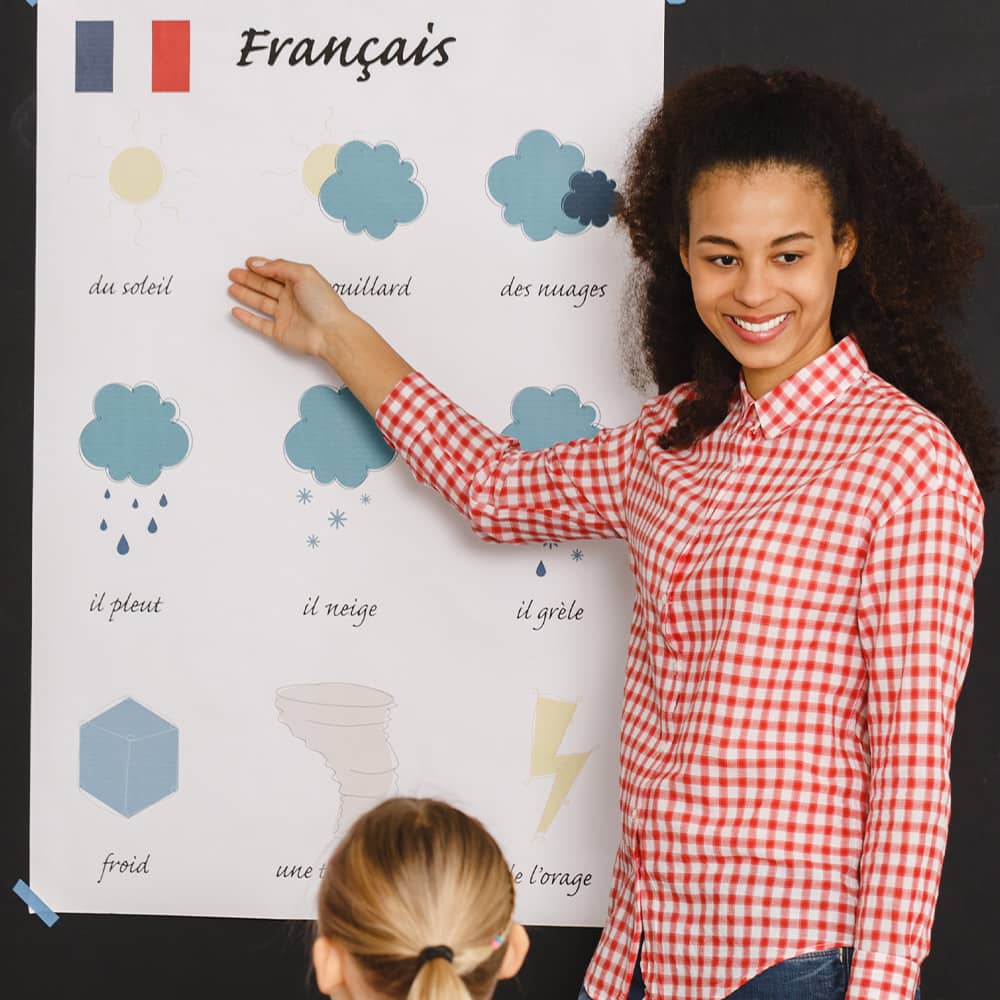Languages: Upper Key Stage 2 French
Lesson plans and resources for Upper Key Stage 2 French. Including integrated CPD to help you to teach French with confidence!
We’re monitoring the upcoming 2025 National Curriculum updates and will revise our resources when we know more. Learn more
Useful resources for teaching French
Useful resources for teaching French
Units
Year 5
Year 6
Popular content
Testimonials
Using Kapow has been hugely positive for both children and teachers. We have even had French awards in our celebration assemblies – something we never had before as the level of engagement was not there. Now children really enjoy their MFL lessons. All teachers report that the resources are easy to use and clear to understand. Teachers find the videos quick and easy supports which they can access efficiently and without large demands on their time.
Sheriffhales Primary School
It is incredibly helpful for teachers who have limited French experience. Activities are always relevant and adapted to different needs. They focus on having fun, which makes it incredibly engaging for the pupils. Lessons and units build really cohesively on one another to help them retain key vocabulary. It is incredible! Our school loves Kapow!
Mrs White, Cedars Park
The resources and plans are great and easy to follow. All staff can confidently pick up a plan and teach a strong French lesson with support from the videos and accompanying resources. We love Kapow languages in our school and it has greatly improved the French teaching in our small school.
Laura, Petham Primary School
I like your CPD videos as they give teachers much-needed confidence, especially teachers who did not have French as a modern foreign language at school.
Ickleford Primary School
It’s very easy to follow, visuals are great. Children are really enjoying the lessons and the progression in some of the children’s work is amazing. The planning explains exactly which slide to use and gives ideas on what to talk about for each. I used to hate teaching French but now it’s one of my favourite subjects to teach. This is down to the resources and lessons Kapow provide.
Claire Rogerson, Cheetwood Community Primary School
A quick recap of last week’s French lesson blew me away… they’ve learnt so much in just one term of Kapow!
Becky, Cookham Rise Primary School
The French videos are great, just the right length and the presenter was brilliant! I’m not a language specialist and I could really see myself using these. Perfect to have the pronunciation and great tips for children!
Liz Brown, Headteacher
We were looking for resources that would aid non-specialist teachers in French, Music and Wellbeing. Kapow ticked all of the boxes. The site is quick to use – just what a busy teacher needs!
Julie Platt, Gawsworth Primary School

